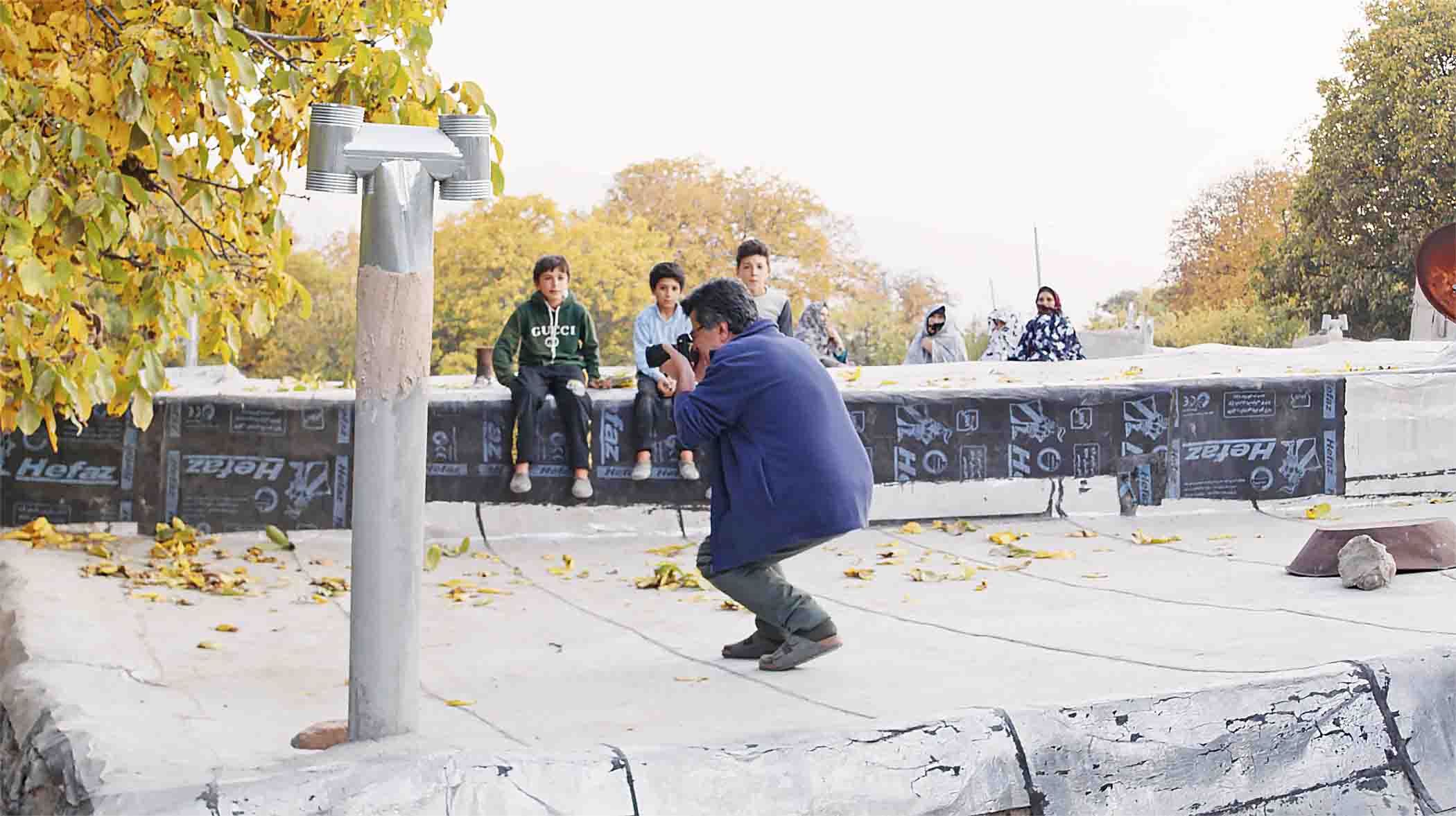Point taken, Jafar Panahi. While No Bears teaches us an important lesson about threatening the powerful and the impact of art, I wish the poor man’s real life tale didn’t have to so completely teach us the movie’s lesson. For those who don’t know, Panahi couldn’t present No Bears at the Toronto Film Festival because he was arrested in Iran for essentially disturbing the country’s leaders, elevating an unpolished film into almost a living pseduodocumentary.
The movie opens with Panahi directing his newest movie, about an Iranian couple, Bakhtiar (Bakhtiar Panjei) and Zara (Mina Kavani) trying to escape Iran for unknown reasons. We then litearlly, Zoom out, as we meet the real life Panahi, directing remotely from a border town in Pakistan. Panahi is renting a small room from the accommodating Ghanbar (Vahid Mobaseri), while figuring out his next move while directing this movie, as it becomes clear he is probably not welcome back in Iran right now.
There’s no way I can truly separate what has happened to Jafar Panahi from No Bears. This is to the film’s detriment unfortunately, because Panahi’s real life story is much more compelling. Clearly Panahi knew his arrest might be imminent, so he tried as hard as he could to make No Bears parallel what was going on in his life. The fit between fiction and nonfiction here is clunky, as No Bears does a lot of Inceptioned metaphoring of the themes the movie is going for. By making the narrative so dense, we lose a lot of the emotional punch No Bears should be packing so Panahi can really make sure we understand the plight of artists as they try to confront oppressive systems and people with the truth.
Essentially, I wish No Bears didn’t try to cram the movie within a movie concept, because a quasi story about a filmmaker in a border town was thrilling enough. In this strict, traditionally policed Pakistani town, an uproar starts when a villager (Javad Siyahi) and another man (Amir Davar) both profess their intent to marry the same woman. Even though the film Panahi is making has the more heavy handed material, this minor dispute is more than enough metaphor for the artist’s dilemma. Word gets around that Panahi has a picture of the villager with his bride (he doesn’t), which would solve the dispute. Despite Panahi’s protestations, the systems of power come down on him slowly, using all manner of tradition and fear to try to extract the information they want from him. And when Panahi tries to express himself through his camera, everyone freaks out, and in their fear, lashes out against him instead of finding other peaceful ways to resolve the situation. In Panahi’s tiny dispute, we see a pitch black farce turn into a depressing allegory about the consequences of speaking truth to power. When No Bears focuses on just this element, the movie demands your attention.
No Bears is a movie I wish I loved watching as much as I admire what went into it. It’s existence is real life proof of the power of art to change minds, especially for the better. I hope Jafar Panahi finds some real life peace while the injustices around him start to have real consequences on those in power in Iran. I hope No Bears becomes some sort of rallying cry leading to better lives for Panahi and fellow oppressed Iranians like him.

